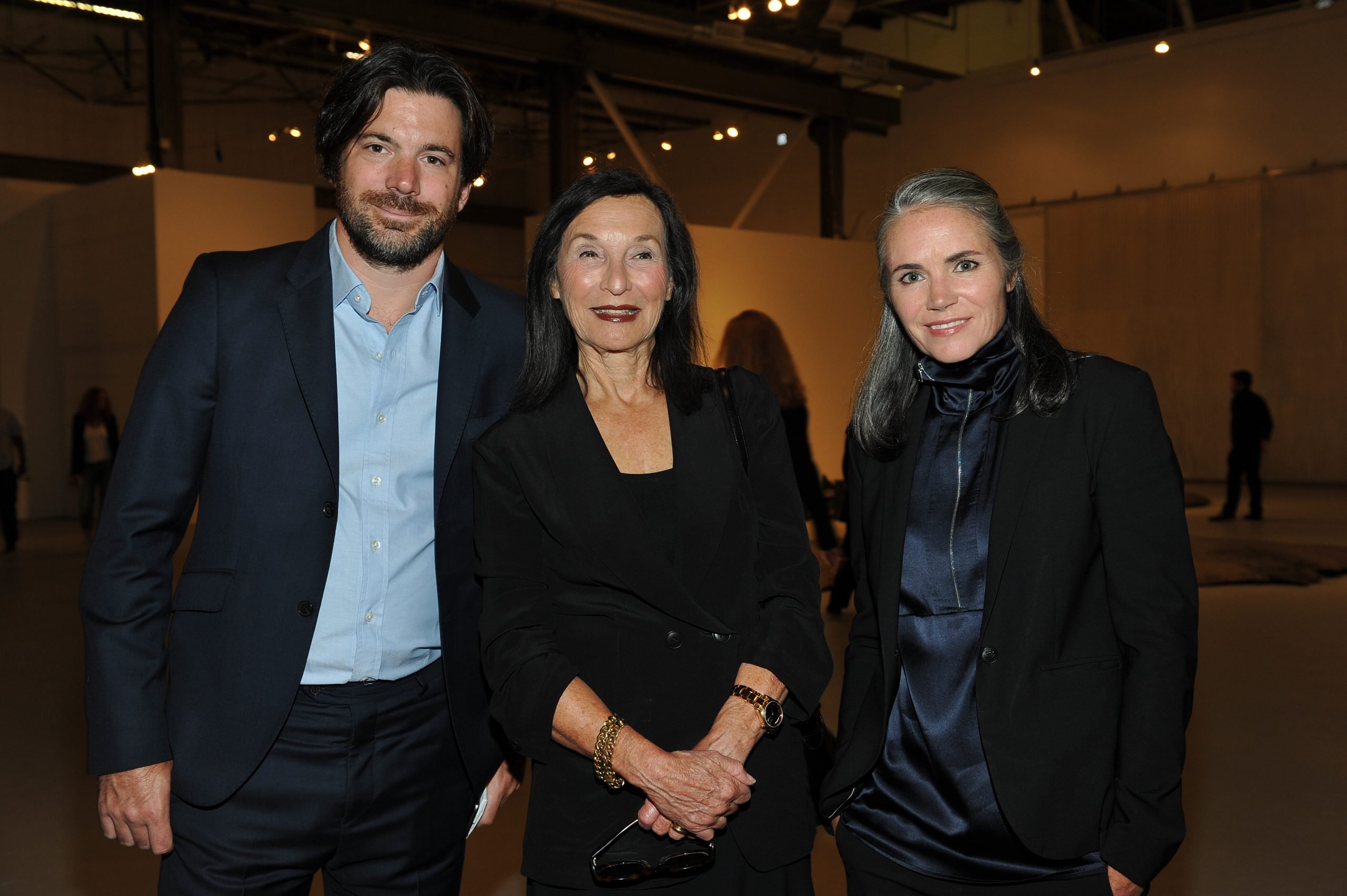
Barbara Gladstone, one of today’s most influential art dealers, died on Sunday in Paris, after “a brief illness,” her gallery’s partners said in an email. She was 89.
Gladstone started her gallery in 1980 in a space on 57th Street in New York that was “the size of a shoebox,” with a monthly rent of $700, she told the Wall Street Journal in a rare 2011 interview. Today, it operates out of two cavernous locations in the city’s West Chelsea neighborhood, townhouses on the Upper East Side and in Brussels, a deconsecrated church in Rome, and a multi-floor shop in Seoul’s Gangnam district.
More than 70 artists and estates are on the Gladstone Gallery’s roster, including leading figures like Thomas Bayrle, Sarah Lucas, Thomas Hirshhorn, Wangechi Muti, Matthew Barney, and Rosemarie Trockel, and closely watched artists who are earlier in their careers, like Ed Atkins, Ian Cheng, and Rachel Rose. Foundations or estates of canonical deceased artists like Keith Haring, Robert Rauschenberg, Robert Mapplethorpe, and Salvo are also represented by the gallery.
In an era that was defined by the rise of mega galleries, with ambitious dealers opening branches in cities around the world, Gladstone took a slower and steadier approach. She added her second Manhattan gallery only in 2008, the same year she opened in Belgium. In 2020, amid the pandemic, she brought aboard the maverick dealer Gavin Brown as a partner, when he closed his gallery, and added his outpost in the Italian capital. Her presence in South Korea was inaugurated in 2022.
An installation view of “Thomas Hirschhorn: Superficial Engagement” at Gladstone Gallery in New York in 2006.
“Barbara was a visionary leader who had an indelible impact on the artists she worked with, her colleagues at the gallery, her many friends, and the entire art world,” the gallery’s partners, Max Falkenstein, Caroline Luce, Paula Tsai, and Brown, said in an email.
“Though many of us expected Barbara to live forever, she has been preparing for this day and set her leadership transition plans in motion in 2016, when Max became a co-owner of the gallery,” the letter reads. “Barbara’s four partners will continue in their roles in leading the gallery, with Max spearheading the leadership team, Gavin leading artists relations and development, Caroline overseeing the gallery’s operations and HR, and Paula continuing to lead Asia and oversight of gallery communications.”
Before starting out as a dealer, Gladstone was a collector focused on prints. She was teaching art history at Hofstra University when she decided to quit and open in Midtown. “The art business curiously has had a lot of women in it, because it was considered harmless,” she said in an interview with W magazine in 2018. “You could still be a good wife and mother. It wasn’t dangerous, because you weren’t going to make any money anyway.”
As the art market soared over the past couple decades, that changed dramatically, and Gladstone became one of the world’s most successful dealers, a regular at the top art fairs, managing waitlists for some of her in-demand artists.
“I think for me the most challenging time was the early years because I was making myself up as I went along,” she told the journalist Charlotte Burns in an interview earlier this year for the podcast The Art World: What If. “I was inventing myself in a way, I had no model, I had never worked in a gallery. I didn’t have the experience. I never worked for anybody else, which I regretted my whole life.”
A view of Matthew Barney’s 1991 show at the Gladstone Gallery, with Barney performing. Photo courtesy of the Gladstone Gallery
Gladstone later moved her business to SoHo, where in 1991 she hosted the solo debut of Matthew Barney, who was just two years out of undergrad at Yale University. The two had met when Barney was 23. “I knew he had a destiny after talking to him for 15 minutes,” the dealer told the Journal. The artist’s ninth one-person outing with the gallery is now on view at its West 21st Street location in New York.
In 1996, Gladstone was among the first dealers to make the leap to Chelsea, buying and subdividing a building on West 24th Street with the Matthew Marks Gallery and Metro Pictures. She had seen dealers get priced out of SoHo as luxury brands moved in, she told the New York Observer. “I just felt I don’t want this to happen to me again, I am going to buy something and be protected.” (The triumvirate of dealers also provided financing for restaurateur Danny Emerman to start Bottino, an area mainstay.)
“Personally, I want a different kind of space,” Gladstone told the New York Times the year she made the move. “I want to be able to drive a truck into a space.”
Gladstone’s survivors include her sons David and Richard Regen. A third son, art dealer Stuart Regen, who cofounded the powerhouse Los Angeles gallery Regen Projects, died of cancer in 1998 at the age of 39.
The artists that Gladstone championed hail from around the world and operate in myriad styles, but they are united by a certain fierce independence and an intellectual rigor that does not preclude visual pleasure. The dealer relished meeting with them as they developed projects. She told Burns that “one of the most interesting aspects of doing this is that I get to speak to the artist when the idea is a germ.”